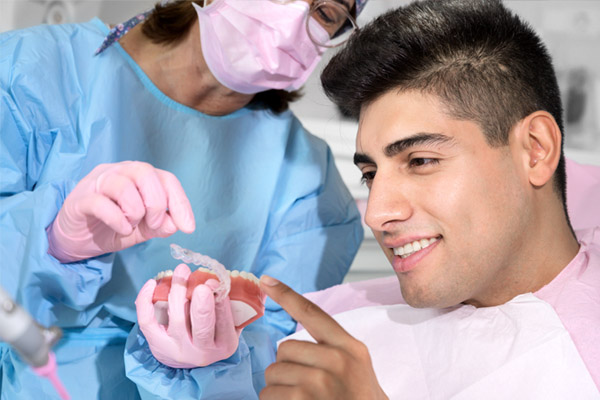Tools Commonly Used by General Dentists

Whether a patient is nervous about the prospect of visiting the dentist or simply curious about dental procedures, it can be helpful to learn about the types of tools used by general dentists. Both dentists and dental hygienists are trained to use several kinds of dental tools to assist with treating and cleaning the teeth. Some tools are specialized for certain treatment methods, while others are more generally used in regular check up visits or cleaning appointments. A good dentist should be open to answering questions from patients, so it can be a good idea to ask what kind of dental instruments will be used either before or during the appointment.
4 common dental instruments and their uses
There are many different dental tools available for dental professionals, each with their own use. Primarily, tools are categorized by function, such as manipulation, examination, restoration and extraction applications.
1. Mouth mirrors
One of the most popular dental tools that many patients may recognize is the mouth mirror. Consisting of a small mirror mounted on the end of a thin wand, the mirror is used to help general dentists and dental hygienists view hard-to-reach places. The backs of molars and the inside of the top teeth are more easily seen with the use of a mirror. Additionally, the mouth mirror can illuminate the mouth by reflecting light to assist in examination.
2. Sickle probes
Shaped like a sickle used to reap grain or hay in a field, the sickle probe can be found in almost every dental office. Sometimes called an explorer, dental professionals use the sickle probe to check the surface of the teeth for defects or plaque. Periodically, the dentist may use the sharp end to carefully scrape debris away from the teeth. There are many different types of sickle probes with varying lengths and thicknesses.
3. Oral scalers
When a patient does not brush and floss regularly or effectively, tartar can develop along the gumline and between teeth. Tartar buildup can lead to gum disease, also known as periodontal disease. General dentists and dental hygienists are trained to identify and remove tartar before it can get the change to permanently damage the teeth of a patient. Careful scraping using an oral scaler, which has a hooked end like the sickle probe, can help to remove tartar.
4. Suction devices
Water, saliva and debris can build up in the mouth of a patient during dental procedures. Dentists and dental hygienists remove liquids through the use of suction devices connected to vacuums. This can help make the patient more comfortable while treatment is performed. Some suction devices come with multiple settings for better control.
Conclusion
Regular visits to general dentists are a great way to take charge of oral health. Modern developments in dental instrument technology have made positive advances in the way the dental world fights gum disease and tooth decay. Patients interested in learning more about the tools used by dental professionals are recommended to ask for more information during appointments or consultations.
Request an appointment here: https://www.carolinasmilesdentist.com or call Carolina Smiles Family Dental at (828) 974-3326 for an appointment in our Brevard office.
Check out what others are saying about our services on Yelp: Read our Yelp reviews.
Recent Posts
Invisalign® for teens can offer adolescents a more comfortable and more discreet option for straightening their teeth. For years, braces were one of the only options for effectively treating a crooked smile. Even though Invisalign® has been providing an alternative for decades, some people may not be familiar with who it is for and how…
Braces have been used for teeth straightening treatments for centuries, and they remain one of the options a dentist might recommend for patients with teeth alignment issues like overbites, crossbites, crooked, and misaligned teeth.Besides ruining the way your smile looks, these teeth alignment problems can also lead to symptoms like headaches, toothaches, and jaw pain.…
As a child’s mouth and teeth develop into adolescence, it may become apparent that there are problems with alignment or spacing. Invisalign® for teens presents an alternative to traditional metal braces but without sacrificing the quality of results of corrective treatment. The specifics of a teen’s condition may impact the eligibility of this alignment option,…
The teenage years can be awkward, especially for those who have to deal with crooked teeth. Invisalign® presents an alternative to traditional braces, and these clear aligners can have the same corrective impact with less discomfort both physically and socially for a self-conscious teen. The benefits of clear aligners and the ability to correct an…


